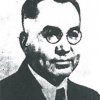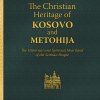Код генерација гледалаца одраслих на најполуларнијим хитовима холивудске фабрике снова развио се један необичан феномен.
Нема ту, верујем, претеране разлике између некадашњих Југословена или осталих Европљана који су имали срећу да се не нађу заточени иза гвоздене завесе.
Реч је о томе да су многобројне слике из живота са оне стране Атлантика посредством катодне цеви налазиле пут до наших дневних соба и постајале свакодневица, малтене призор из комшилука.
Полазило је то за руком и Дизнију, чији су цртани филмови, како подсећају најбољи његови овдашњи хроничари, успевали да у социјалистичку Југославију уз догодовштине његових животињских јунака убаце и слике америчког сна – кућа са травњацима, аутомобила и богатих трпеза.
Неке пак слике су нам се толико урезале, постале су део нашег „колективног несвесног” да смо почели да их сматрамо својима, а да их никада нисмо истински доживели.
Посета Харварду је за мене носила одређену дозу фамилијарности, нечега што сам много пута претходно (виртуелно) доживео.








